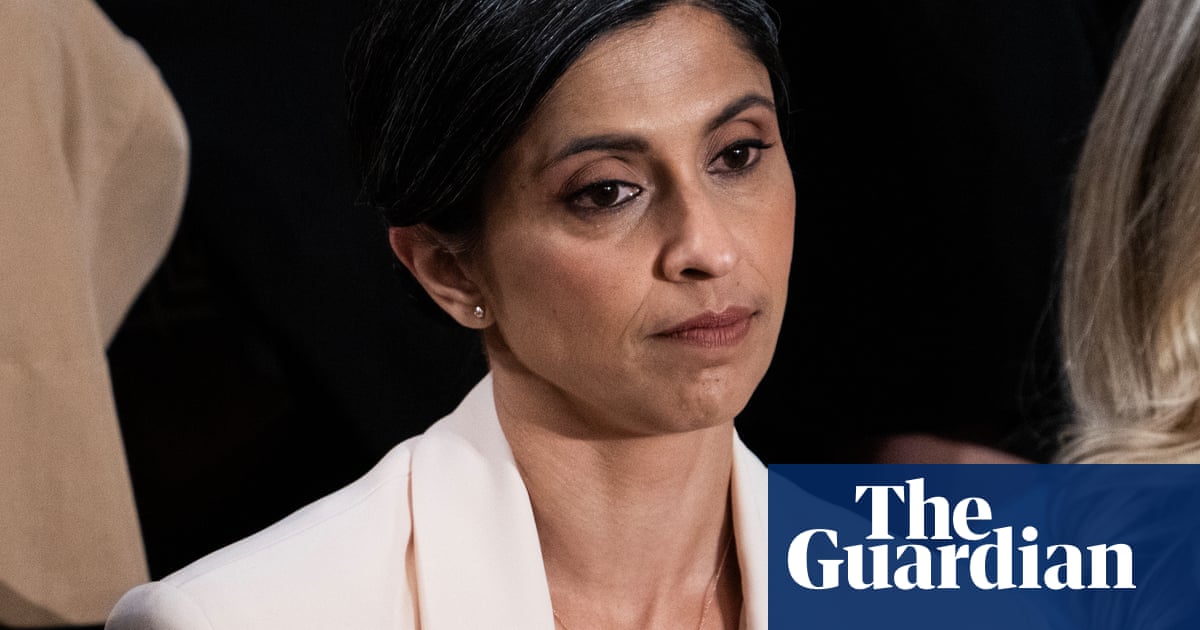Usha Vance learned her husband,JD, had been selected to be Donald Trump’s running mate “maybe five minutes” before the news was made public – and just about an hour before he was formally nominated.
“It really was like a bolt of lightning,” Vancesaidduring an interview on Meghan McCain’s podcast, Citizen McCain. Nearly a year later, seated in the vice-president’s residence on the grounds of the US naval observatory, Vance reflected on how significantly her life has changed in ways big and small. “People call you ma’am,” she said. “No one’s ever called me ma’am before this.”
Until last summer, Vance, the daughter of immigrants and a one-time Democrat, worked as a lawyer at a progressive law firm, raising her three young children in Ohio. Now, as second lady, she is escorted by Secret Service and can’t leave a gym class without being recognized in Washington.
During the nearly hour-long interview, Vance was not asked to weigh in on the political or policy agenda of theTrump administration– the president’s decision to strike Iran, the immigration raids that have roiled her native California or the crackdown on colleges and law firms.
Instead, Vance spoke about how the second couple is working to create a sense of normalcy for their three young children, and how she hopes to use her role to “make things just a little bit better for other people”. She talked about missing Ohio, trying to keep her kids off screens, her husband’s love for baking, and losing “that sense of being anonymous in public”.
Asked about being a first – Vance is the nation’s first south Asian and Hindu second lady – she said it has “not been something that people are hyper-focused on”.
“Maybe we’ve just sort of moved beyond trying to count firsts of everything,” she said, while also noting that many people have told her “how proud they are and how excited they are for this”.
“That does give me a little bit of a sense of purpose,” she said.
At the end of the interview, McCain, a former host of The View and daughter of the late Republican senatorJohn McCain, raised what she called the “elephant in the room” and asked whether Vance had considered the prospect “that you could be our first lady in a few years”.
“I’m not plotting out next steps or really trying for anything after this,” Vance said. “In a dream world, eventually, I’ll be able to live in my home and kind of continue my career and all those sorts of things. And if that happens in four years, I understand. If that happens at some other point in the future, I understand. [I’m] just sort of along for the ride and enjoying it while I can.”
Vance so far refrained from choosing a single social cause or project to champion, as her predecessors have done, worried that the response would be to “attribute some kind of political motive or start to polarize around it”. Still, she offered a glimpse of the issues that she may want to focus on in her role. Her office is hosting the “Second Lady’s 2025 Summer Reading Challenge”, which she described as “the first of many small attempts” to encourage reading and help draw “children into the world of things and not of devices”.
At one point in the conversation, McCain revealed that she was expecting a third child – a boy – and asked Vance to “share with me and women in America why having three kids is good”. Vance congratulated McCain warmly, and described how her children operated as a “pack”, playing together and taking care of each other. She assured McCain that the transition from two to three children was “shockingly, the easiest of all”.
